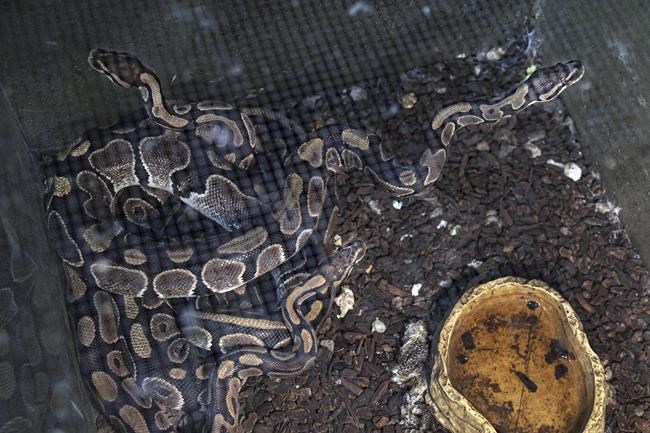MILLER PLACE, N.Y. (AP) — Authorities rescued nearly 300 rabbits, birds and other animals from a filthy home in New York and charged a self-help book author with cruel confinement of animals, prosecutors announced.
“Operation Open Cage” started Oct. 1 when investigators were contacted by animal control officers who reported a hoarding situation in the hamlet of Miller Place on Long Island, the Suffolk County district attorney’s office said.
Officers wearing hazardous material suits found a total of 118 rabbits, 150 birds, 15 cats, seven tortoises, three snakes and several mice living among filth, many surrounded by their own feces and urine and covered with cockroaches, the district attorney said.
The owner of the home, Karin Keyes, 51, was charged with multiple counts of cruel confinement of animals. She’s a social worker and the author of a self-published book titled “Journey Into Awareness: Reclaiming Your Life.” Information on Keyes’ attorney wasn’t available. A phone message was left at a number listed for her.
Teams from the American Society for the Prevention of Cruelty to Animals helped the district attorney's Biological, Environmental and Animal Safety Team and local officers in removing and transporting the animals to animal welfare organizations around New York for medical care.
“When ASPCA responders arrived on the property, it was clear that immediate intervention was necessary to remove hundreds of neglected animals from the inhumane and brutal conditions they were subjected to and provide them with expert care,” said Matt Bershadker, president and CEO of the ASPCA.
Brookhaven Town Council member Jane Bonner said in a statement, “The level of cruelty and the abhorrent conditions that the animals were subjected to is beyond comprehension. The awful neglect that they were forced to endure cannot be excused or explained in any way."
Jed Painter, the supervising attorney of the district attorney's animal unit, told Newsday that Keyes “got very overwhelmed with animals under her care." He added, "The conditions of any household with 300 animals is going to have toxic ammonia levels.”
The Associated Press




